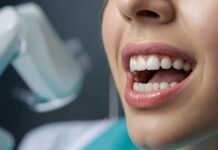Several dental problems often require surgery. Surgery may include removing wisdom teeth, putting in dental implants, and doing other dental work to treat the teeth and gums.
Surgery can be intimidating to most patients, and the recovery period proves to be a headache for others. You’ll need to be extra cautious during this period to avoid further dental issues.

Dental surgery can be hard and painful, but here are a few aftercare tips for better recovery:
- Rest More And From A Certain Angle
Rest is the most important thing to do after undergoing dental surgery. Try to take as much rest as possible. Avoid doing anything strenuous for two days and take a break from your regular schedule. Doing so may help you to avoid injuring the surgical site. You can return to your routine as soon as the wound has healed.
Additionally, sleeping with your head at an angle will ease the stress on the affected site. Elevating your head maintains the affected site level and aids in fluid drainage. It’ll be less likely for the area to swell, and you will be less likely to bleed again if the room is elevated.
- Check Your Diet
Keeping track of what you eat is very important after dental surgery. To have a quick and complete recovery, you must maintain a nutritious diet. This is because eating the wrong things can make surgery sites hurt and slow down immunity and healing.
After surgery, it’s best to eat and drink cool, non-heated foods and beverages to alleviate pain and discomfort. To begin with, limit yourself to dental health foods that don’t involve chewing. Among these are yogurt, oatmeal, applesauce, smoothies, and soup.
This is also a good time to steer clear of straws when drinking beverages. Suction can apply pressure on the surgical site and break up required blood clots for healing.
- Make Sure To Ice It
Your face may swell or bruise. If you’re experiencing this, ice can assist. Ice your jaw for 30 minutes and then reapply 15 minutes later. Also, you may alternate using an ice pack between the left and right sides of your mouth if you’ve had both sides operated on. Swelling should subside after two or three days if you do so.
- Block The Blood Flow
You may experience some bleeding in the days immediately following surgery. You can reduce blood flow by gently biting on folded gauze. Otherwise, contact your dentist or oral surgeon if the bleeding persists for more than 24 hours or is so thick that you need to change the gauze frequently.
- Don’t Miss Your Medication And Watch For Adverse Effects
If your dentist prescribes pain relievers or antibiotics after your surgery, don’t forget to take them. Follow your dentist’s instructions for taking medications to ensure a comfortable recovery and prevent complications. Even if you feel better after a few days, it’s also essential to finish taking the antibiotics prescribed by your doctor.
It would help if you also watched out for adverse side effects. If you experience any side effects when taking medication, inform your doctor, and never take any over-the-counter medicines without first consulting them.
- Maintain Good Oral Hygiene And Protect The Surgery Site
In the 24 hours following your dental surgery procedure, avoid brushing and flossing your teeth. But even after that, you still need to practice good oral hygiene to prevent infection. Do this by gently rinsing the region with an antibacterial mouthwash twice daily. Meanwhile, you can wash your teeth with a soft-bristled brush and stay away from the surgery site as you heal. Your dentist will tell you how to keep your teeth clean after surgery with as little pain as possible.
In addition, you must exercise extra caution for the first several hours following your dental surgery. Disturbing the surgical site may cause a blood clot to form. It’s possible to dislodge the blood clot by talking or spitting.
- No Tobacco Use or Smoking
At least 24 hours after surgery, you should refrain from smoking all. Smoking can impair the body’s ability to heal itself, leading to a dry socket. This can cause a blood clot to detach from the surgical site, exposing the nerves and bone beneath it. Tobacco chewing should also be avoided until the surgical wound has fully healed. Tobacco can cause discomfort if it adheres to the injury.
Final Thoughts
Many dental issues require surgery. Surgeons can perform a wisdom tooth extraction, dental implants, and other dental work to treat the mouth. Most patients are scared of the operation itself, but the recovery period is a pain for others.
Still, the most important thing to do after dental surgery is to follow these instructions and check in with your dentist. By doing this, your dentist will be able to keep track of how you’re healing, stop problems from happening, and help you get better quickly.


























